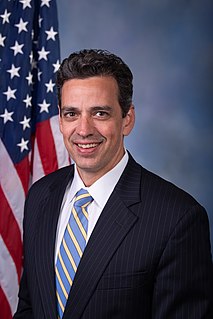A Quote by John Hickenlooper
We need an economy that fosters and encourages competition and innovation.
Quote Topics
Related Quotes
A disordered currency is one of the greatest political evils. It undermines the virtues necessary for the support of the social system, and encourages propensities destructive to its happiness. It wars against industry, frugality, and economy, and it fosters the evil spirits of extravagance and speculation.
The aspirations of democracy are based on the notion of an informed citizenry, capable of making wise decisions. The choices we are asked to make become increasingly complex. They require the longer-term thinking and greater tolerance for ambiguity that science fosters. The new economy is predicated on a continuous pipeline of scientific and technological innovation. It can not exist without workers and consumers who are mathematically and scientifically literate.
Energy is a sector of the economy that has been particularly resistant to innovation. This is precisely the problem. It is why we are still dependant on energy sources that are 100 to 150 years old while virtually every other sector of the economy has transformed itself. This is why we believe that the faith that many environmentalists still hold that carbon regulations and taxes will drive sufficient private sector investment into energy markets to create the kind of innovation we need is unfounded.
Despite the large number of mergers, and the growth in the absolute size of many corporations, the dominant tendency in the American economy at the beginning of [the 20th] century was toward growing competition. Competition was unacceptable...it was not the existence of monopoly that caused the federal government to intervene in the economy, but the lack of it.
We can't have extraordinary dynamism, innovation, and change in the economy and expect to have predictability and stability in our personal lives. It's not as if there are these big, giant institutions existing between us and the economy. In fact, these institutions have become tissue-thin. There is no mediation anymore. We are the economy; the economy is us.

































